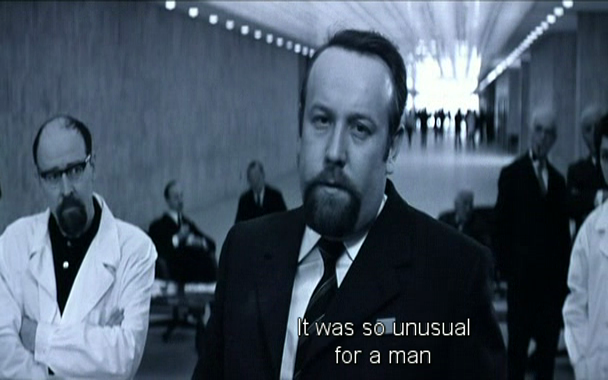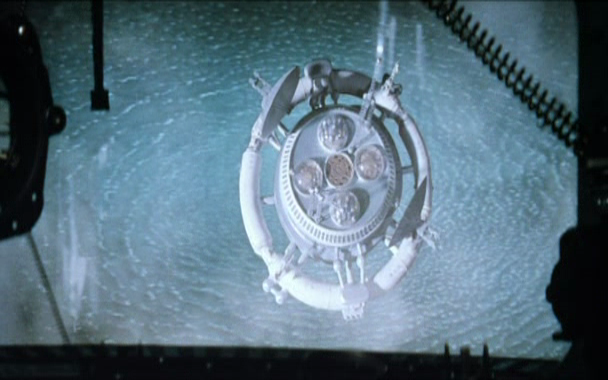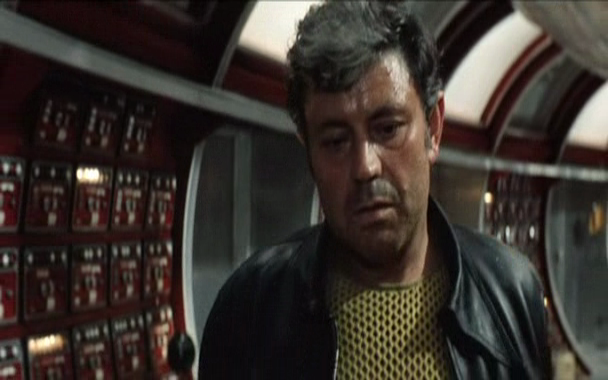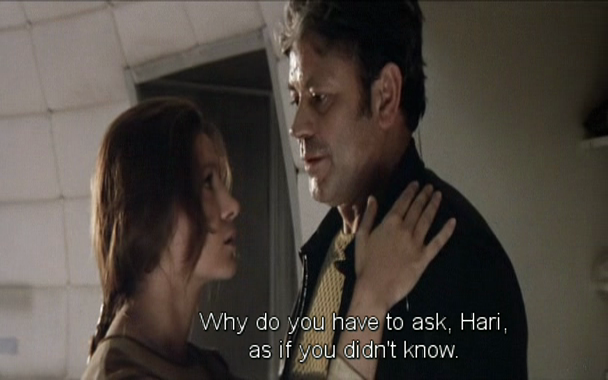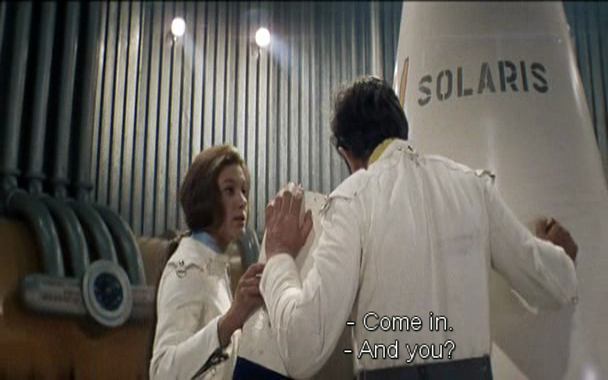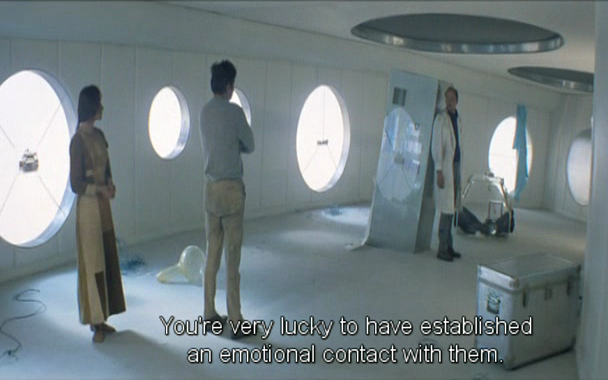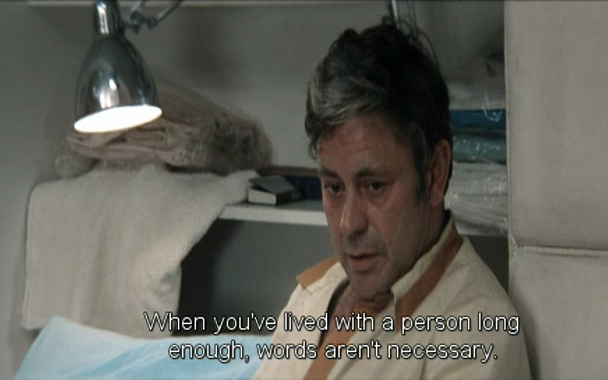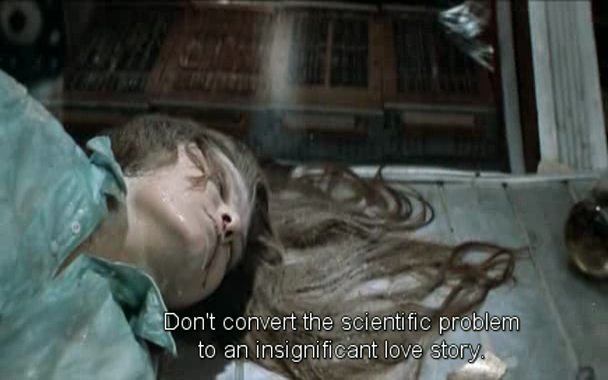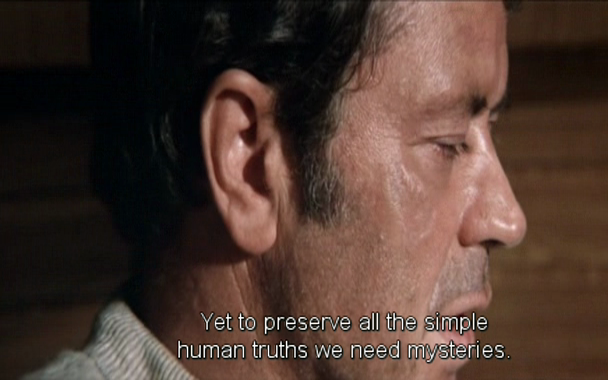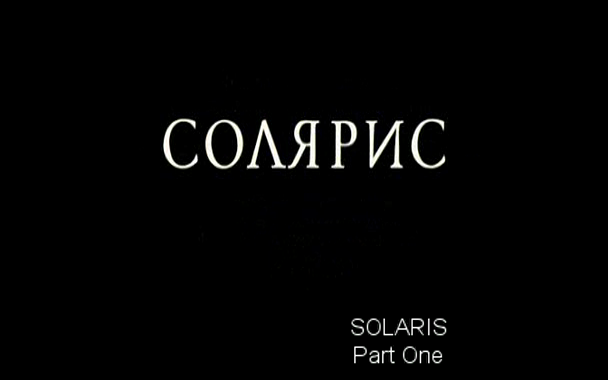
#23 – Solaris (1972)
Solaris (1972)
Film review #23
Director: Andrei Tarkovsky
A sci-fi epic delving into the depths of an ocean planet and the human mind…Was this the Soviet Union’s 2001: A Space Odyssey?
Chris Kelvin, a psychologist is spending sometime with his parents at their home. He is reflecting on his life down by the lakeside before he is sent to a space station orbiting the oceanic planet Solaris the very next day. Before leaving, he destroys most of his possessions in a bonfire, and says goodbye to his Father, who he does not expect to see again.
Upon arriving at the space station, Kelvin learns that one his old friends, Dr. Gibarian is dead (having committed suicide), and the only two surviving crewmembers, Dr. Snaut and Dr. Sartorius are not forthcoming with information about what has happened, and act strange when Kelvin pushes them for answers. Snaut advises him to rest in the quarters, and everything will become clear…
Upon waking up from his sleep, a woman has appeared in his quarters, despite him blocking the doorway. It turns out it is Hari, his deceased wife. Not wanting to be taken in by this obvious trick, he tricks her into getting into an escape rocket and jettisons her into space, but burns himself on the exhaust rockets. While Dr. Snaut tends to his wounds, he explains that these “visitors” have appeared to everyone aboard, and are an incarnation of people they know, being generated by Solaris in some way.
Later, Hari appears before Kelvin again. When he leaves the room, she tears through a door after him. He watches her regenerate her injuries right before his eyes. When Dr. Sartorius calls a meeting with everyone, Kelvin introduces Hari as his wife and insists they treat her with respect. Sartorius reveals his latest discovery, that the “visitors” could be attacked with a radiation blast of x-rays. Hari realises she is not human, and composed of the memories of Kelvin’s dead wife. Eventually, Kelvin tells Hari how his real wife committed suicide ten years ago. Becoming increasingly unable to cope, Hari kills herself again by ingesting liquid oxygen. However, she soon recovers.
While he is sleeping, Kelvin dreams about his Mother. and multiple images of Hari. When he wakes up, Hari is not there. Snaut gives him a goodbye note from her, as she has gone to Sartorius and got him to destroy her. After broadcasting Kelvin’s brainwaves over Solaris, small islands have appeared all over Solaris. Now Kelvin has to make the choice of returning to Earth, or to live on Solaris where everyone he has known and loved has been reborn. In the end, we see Kelvin in front of his parent’s house, as the camera zooms up to reveal an island on Solaris…
I have previously watched the 2002 “re-make” of Solaris, but I was pleasently surprised to find they are two completely different movies, and the plot deviates at a number of points. This version is very much akin to Kubrick’s 2001: A SpaceOdyssey, which was released in the west about three years prior to Solaris. The movie is entirely Russian, which draws up interesting more interesting comparisons between eastern and western science-fiction. Running in at over two and a half hours, this is very much an epic story that focuses on a slowly revealed narrative and development. 2001 and Solaris have the theme of communication between alien species as a central theme. In 2001 this includes the relationship between man and machine too, and any extraterrestrial species is never revealed or explained. In Solaris, we are confronted with an alien form of consciousness that can penetrate into the mind and memories of humans, and the question of this being hostile communication or not plays an important part in the storyline. The music too is sparse and far between, the only reccuring music being Ich ruf’ zu dir, Herr Jesu Christ by Bach. The biggest contrast between the two is that while 2001has an exceptionally high budget and finely crafted sets, Solaris has a more sparse and limited design. Apparently the director wanted to heighten the focus on the characters rather than building an imaginary and complex future which other science-fiction does.
Perhaps it is unfair to compare the two movies so closely. Solaris is an epic tale in it’s own right and deserves to be looked at as an individual entity. The original novel, written by Polish writer Stanisław Lem was published in 1961. This adaption focuses on the human psychology of extraterrestrial contact and the impact it has on the central characters, while the original novel had more of a focus on the “futility of extraterrestrial contact”. The characters themselves are constantly put at odds with each other with their views as to what to do with Solaris, and whether it should be abandoned or understood. The compex relations between themselves and Solaris evokes all kinds of philosophical rationales to a viewer, never giving the answer, just merely asking the questions. Whereas science-fiction very much traditionally works around the premise of an imagined future, that aspect of science-fiction is very much disregarded in Solaris, giving no real indication of time and place, and focusing entirely on this complex relationship between unknown life.
Solaris was only released in five Russian cinemas originally, but it remained a staple of the cinemas for years, and earned it a cult status. It is a film that is still widely regarded as one of the most important in science-fiction, and while definitely not a casual, easy to watch film like the 2002 version, in my opinion it is worth finding the time to sit down and absorb its message.


